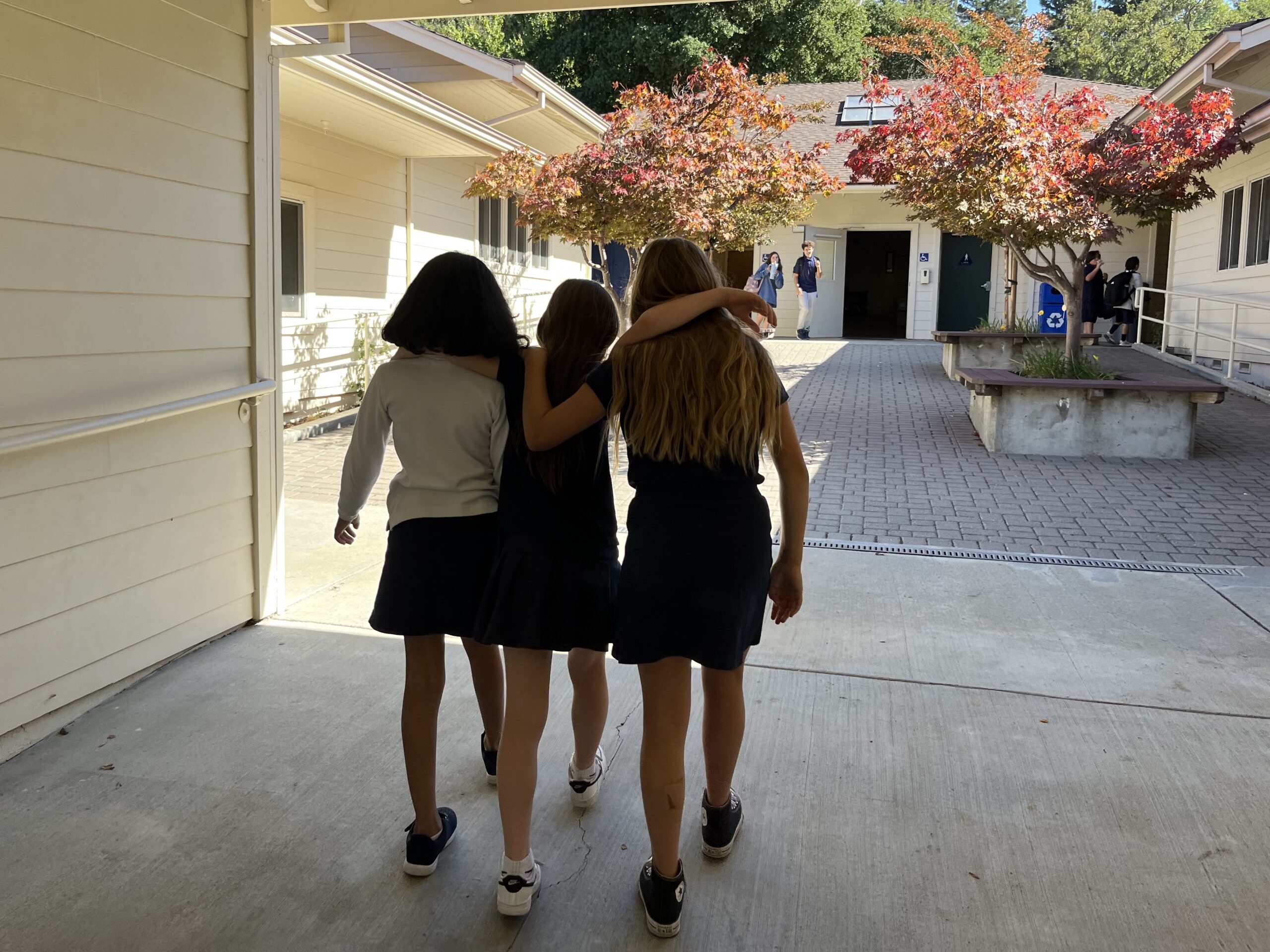Click here to listen to Episode 54: Being Human
NYTimes columnist David Brooks made a compelling case this past weekend for something that I think has long been at the heart of the Hillbrook experience – teaching the essential skills for being human. In a world that feels increasingly disconnected, turbulent, and polarized, he encourages us to be openhearted and to learn the skills that are essential to build friendships and create community. What are those? According to Brooks:
“being curious about other people; disagreeing without poisoning relationships; revealing vulnerability at an appropriate pace; being a good listener; knowing how to ask for and offer forgiveness; knowing how to host a gathering where everyone feels embraced; knowing how to see things from another’s point of view.”
Brooks was pointing out that very few adults have these skills, which I suspect is true, and also that we don’t typically teach people these skills. I certainly know that I was not explicitly taught these skills as a child in my schools. And, yet, as I read the list I thought to myself, at Hillbrook, students are being asked to do these things every day.
Wonder how to design a gathering where everyone feels embraced? Just pop into any classroom on either campus each morning. You’ll see students and teachers holding morning meetings that prioritize greeting people, knowing them as individuals, creating space to ask questions and learning how to listen carefully to others’ stories.
Want to learn how to disagree without poisoning relationships? Or know how to see things from another’s point of view? Join any variety of discussions or activities where students are challenged to think about complex topics and controversial issues from a range of perspectives.
Just last week, Upper School Spanish teacher Noelia Gálvez Fernández shared her personal story with the 9th grade class as part of the Upper School all-school meeting. A fairly recent immigrant from a small town in Southern Spain, Noelia spoke powerfully about the challenges she faced as she settled into several different teaching roles in extremely low-income communities, as well as the incredibly difficult moment that she was left with nothing after her home was burned in a fire. She talked about the risks she took to leave Spain and how much she has grown as she has learned to immerse herself in a new country and multiple new communities, after having grown up in a tiny town where she knew only those who she grew up with for most of her first 20 years. Listening to her story I was in awe of her resilience, her vulnerability, her authenticity, and the incredibly powerful lessons she was sharing with her students and her colleagues.
Why do we share stories like this with students? To gain an appreciation for the rich diversity of experiences that exists within our own community, and to help them realize that there is more to people than first meets the eye. Noelia’s not just a fabulous Spanish teacher, but a full human who has lived her own fascinating, sometimes challenging, purposeful life. Our students now know a little more about that – and are, in the process, invited and encouraged to be curious about the many other humans with whom they engage.
The lesson in the end seems obvious – we are teaching students how to be human with each other – and yet for so many schools and communities, it is not something that is prioritized at all. Looking around the world today, I am confident that there is no more important thing that we can and should do.
